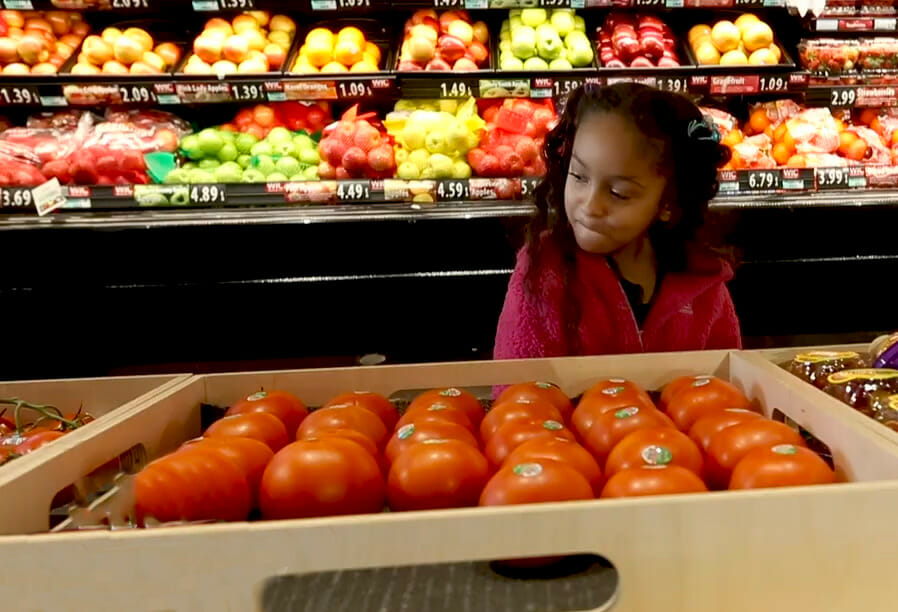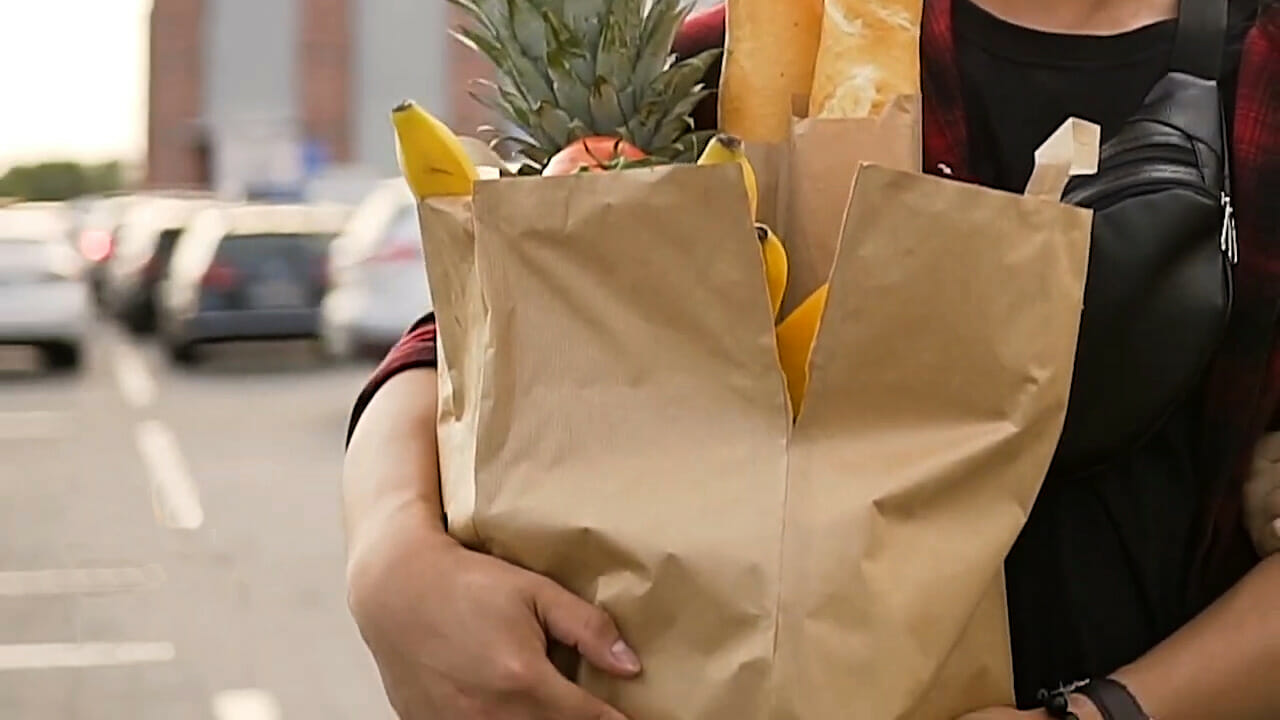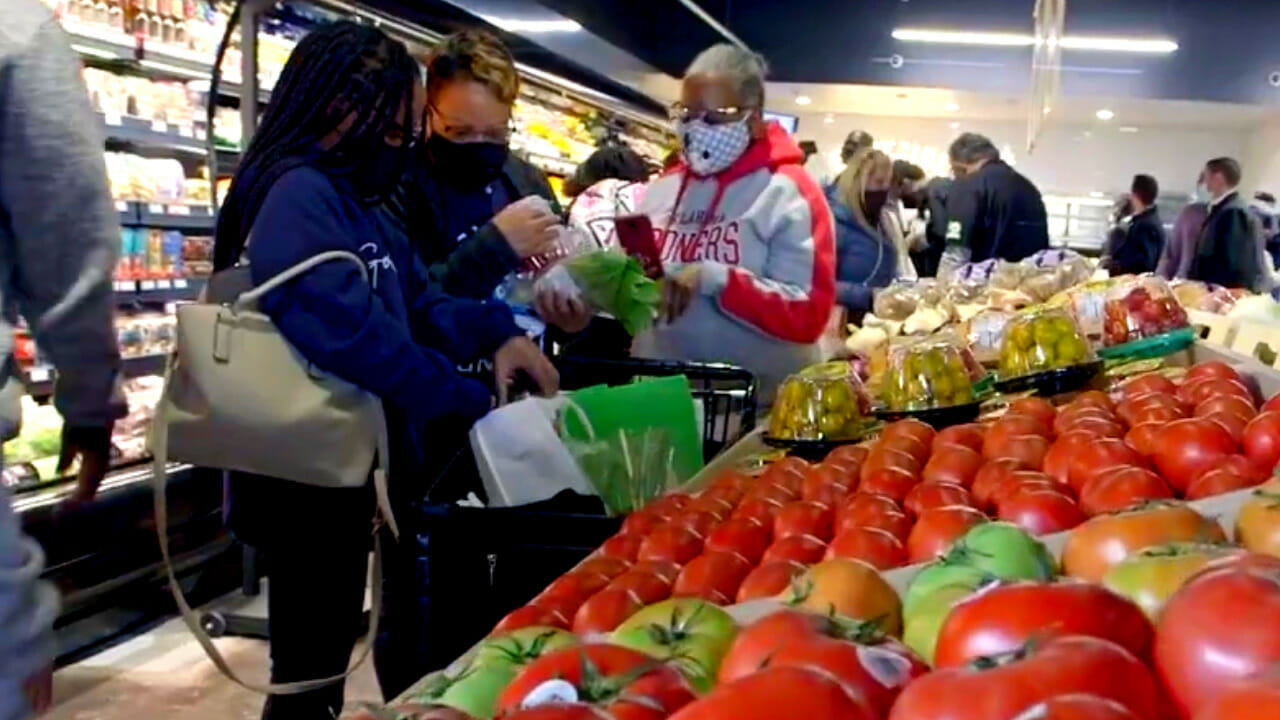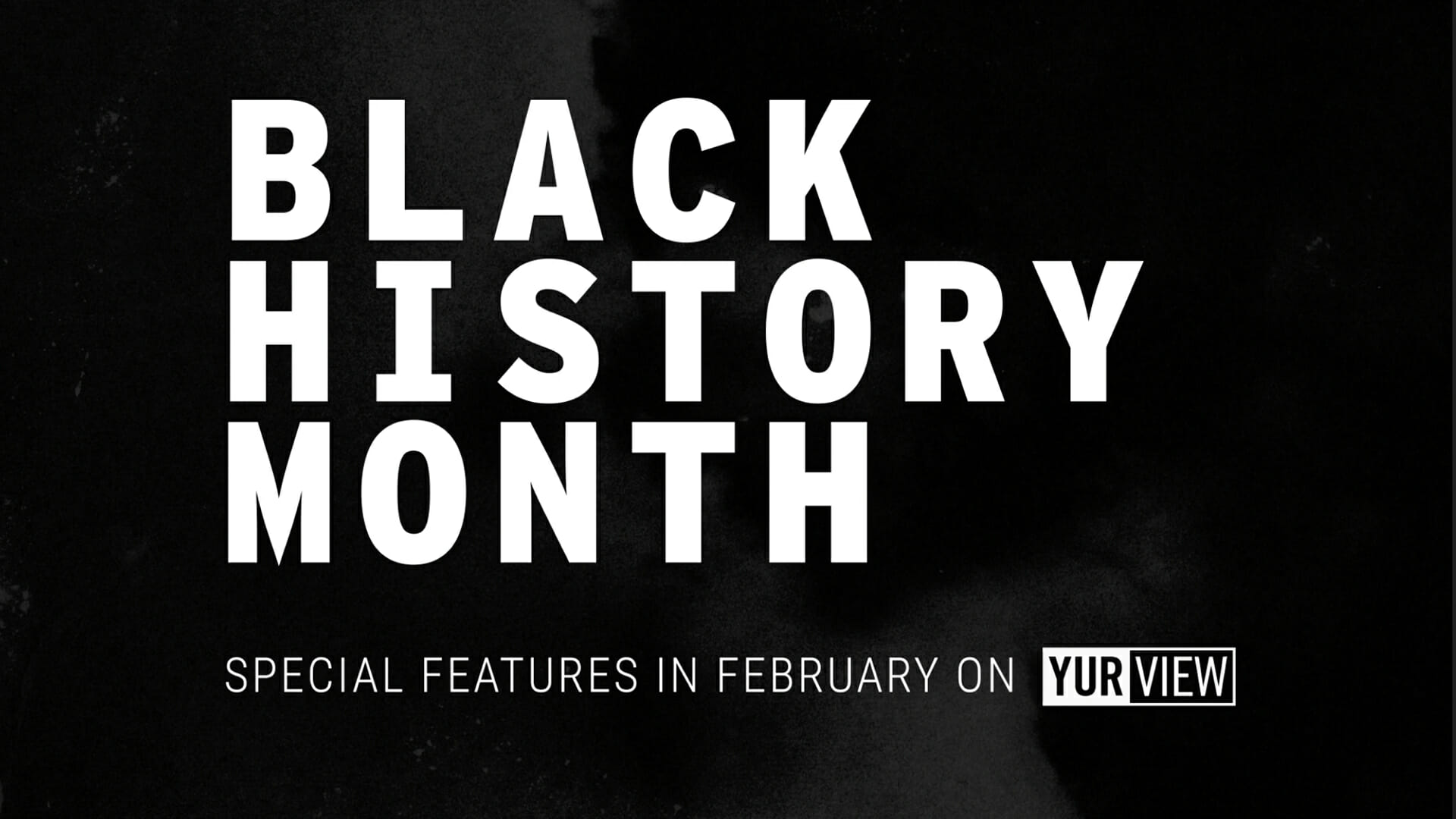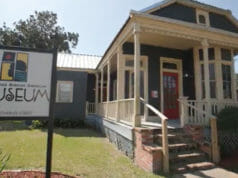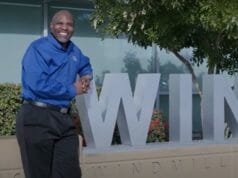When the last grocery store within a 10-mile radius closed in 2019 in this Northeast Oklahoma City neighborhood, residents were at a loss. For some, walking and public transportation were the only two sources for getting to a shopping area.
That’s when the non-profit RestoreOKC stepped up and turned what seemed like an uphill battle into a realized dream for the community – The Market at EastPoint. RestoreOKC, along with the help of residents, lured a major grocery chain to the area with special incentives. And the area continues to grow and thrive, even during the pandemic.
Watch the video above to get an inside look at the powerful story behind The Market at EastPoint, or read the full transcription we’ve provided below (lightly edited for clarity.
The Market at EastPoint
Jocelyn Gaines, Neighbor/Cashier, The Market at EastPoint (0:05) – I grew up in this community. And we’ve always had a grocery store on 23rd and Martin Luther King. And once it closed, I understood the desperation of people who didn’t have transportation because they either had to walk several miles to try to get to a grocery store, try to carry those bags back. And I think it made a difference on how they provided or fed themselves and their families.
Caylee Dodson, Executive Director RestoreOKC (00:30) – RestoreOKC is an asset based community development organization here in Northeast Oklahoma City. Our goal is to be a really faithful bridge to bridge in the assets that are maybe missing from historical injustice. So restoring systems like food access is a huge piece of that mission for us.
(00:45) – COVID was a huge impetus for this entire market. We had a micro grocer happening at the time, and really in an 24-hour period out of a 1200 square foot micro grocer, we saw over 10,000 pounds of sales. What we saw is that it was critical that neighbors were able to walk and get groceries.
Jonathan Veal, Director, RestoreJobs (01:08) – We opened our doors April 21st. And the response was just overwhelming. I saw a lady step in, and she stopped and just started crying. She just said that this is an answer to prayer. She pointed across the street and said that’s where her home was. She was just so happy and elated to be able to walk across the street and get those basic food needs met.
JG (01:28) – Once we opened this store, I got a clearer picture of how desperate it was when people started coming in. And they were so relieved that they can walk a couple of blocks to get what they needed versus having to wait on the bus, having to haul it back across town.
JV (01:45) – Out of 36 employees we have, we have 27 that are actually from this community. We created access for employees to gain employment, but also for our neighbors to have access to fruits and vegetables. And to see that we can do it on a daily basis is inspiring and encouraging for me.
CD (02:07) – Oftentimes we hear a narrative that grocery stores are difficult to maintain in communities that are quote, low income. In the first quarter that this store was open, this store did four times the national category sales average in fresh produce. We see health income, health disparities in these communities because they lack access to fresh produce, not because it won’t sell.
JG (02:29) – This market is making a positive impact because I see the people continuously come in. And when they come in and said a lot of times…what we get is gratitude from them at the cash register. “We are so grateful that this place, this market is here. We are so grateful that you have fresh fruit and produce. We are grateful that you’re in the community.” And that makes me know that this is the right thing.
For more Black History Month features, visit yurview.com/BlackHistoryMonth.


